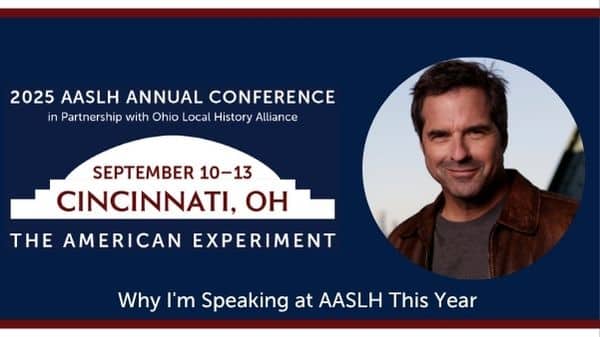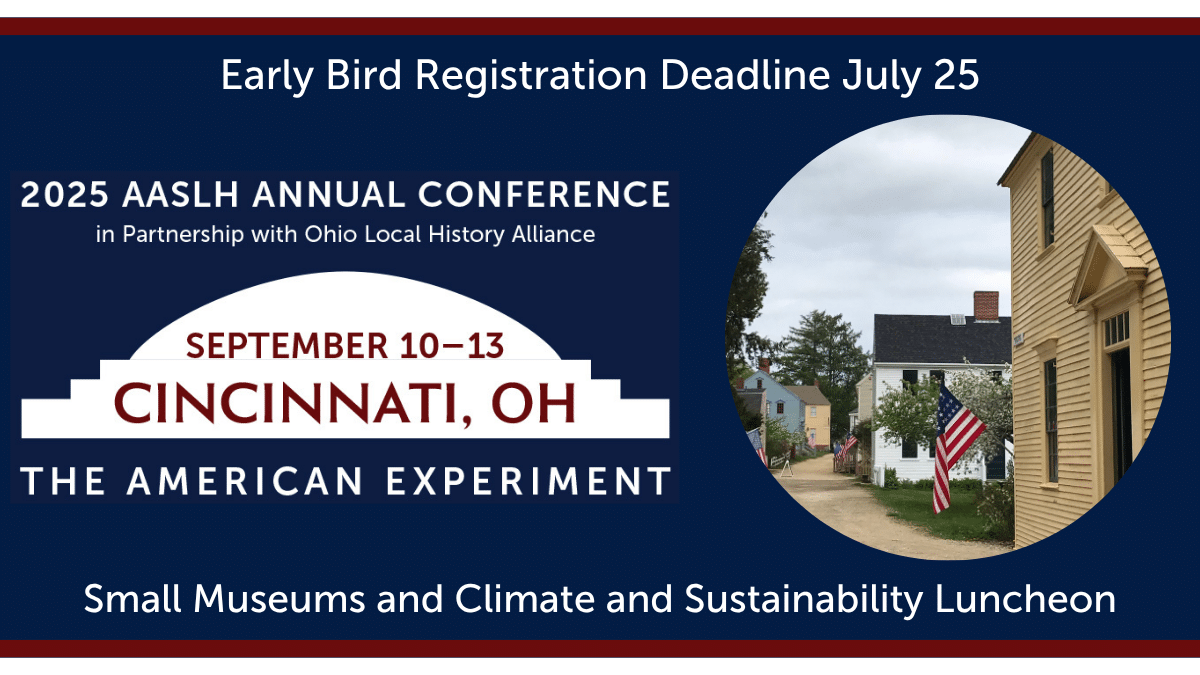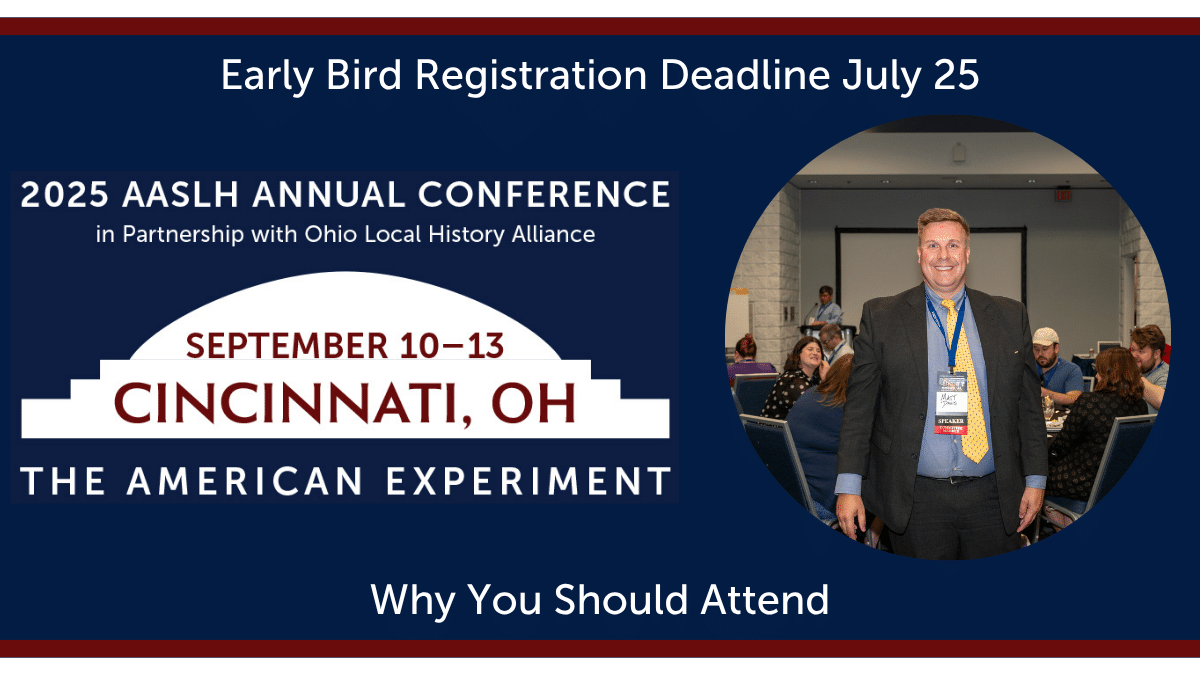I enjoyed attending the AASLH Annual Meeting in Birmingham this fall, and I’m grateful to the Small Museum Committee for the scholarship that made it possible for me to go there.
As much as I participate in online conferences and programs, it doesn’t compare with seeing people in person. The outstanding variety of sessions made it difficult to choose which ones to attend. Seeing old friends and meeting new colleagues and visiting new museums enhanced the trip.
My institution is going through major changes, so attending the conference was important to me. We plan to renovate our facility, work on a strategic plan, and revise the narrative interpreting our collections. Most of these topics were addressed in some way at the conference.
We also plan to revise our bylaws and restructure our board. I was especially interested in a session sponsored by the Museum Trustees Association where they discussed this topic. I hope to apply those concepts as we update my institution’s governing body and bylaws.
Another session focused on relocating a museum to another part of the town. That is something my board has considered, so it was helpful to hear from someone who had experienced that. Of particular interest was hearing how the residents either embraced or opposed the change.
I was fascinated with the visit to Sloss Furnaces National Historic Landmark, the only 20th century blast furnace in the U.S. preserved and interpreted as an historic industrial site. This was followed by a trip to Vulcan Park to view the world’s largest cast iron statue.
Another highlight was listening to U. S. Poet Laureate Natasha Tretheway read from her work, Native Guard, for which she won the Pulitzer Prize in 2007. We’re both native Mississippians; she’s from Gulfport and I’m from Hattiesburg. Now, having read some of her work—which I was inspired to do having met her and heard her read—I have a better understanding of the history of southern Mississippi and the challenges she faced as the child of an inter-racial couple.
I was honored to have been in the audience at the 16 Street Baptist Church when Carolyn McKinstry delivered her very moving speech. Being a Southerner and growing up during the Civil Rights Movement made a deep impression on me. As I look at rewriting the narrative of life in the Mississippi Delta, Civil Rights will be an important topic to discuss, one that has been all but ignored.
With the Annual Meeting held in Birmingham, I was able to visit the Birmingham Civil Rights Institute and view its exhibits for the first time. This will help me revamp our interpretations and program structure. I’m currently applying what I’ve learned and look forward to implementing more changes in the future.




